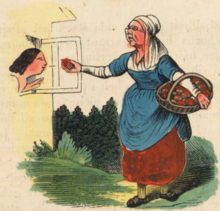This is an essay. It contains the advice or opinions of one or more Wikipedia contributors. This page is not an encyclopedia article, nor is it one of Wikipedia's policies or guidelines, as it has not been thoroughly vetted by the community. Some essays represent widespread norms; others only represent minority viewpoints. |
| This page in a nutshell: If an otherwise reliable source attributes information to an unreliable source then that information is likewise unreliable. Similarly, if there is a failure to abide by a Wikipedia process, the result will have reduced legitimacy or be void. |

Fruit of the poisonous tree is a legal metaphor in the United States used to describe evidence that is obtained illegally. The logic of the terminology is that if the source (the "tree") of the evidence or evidence itself is tainted, then anything gained (the "fruit") from it is tainted as well.
The metaphor can be applied to citing sources. If information gained from a reliable source (the "fruit") was uncritically repeated from an unreliable source (the "tree") without passing through the reliable source's fact-checking process and editorial controls, then that information may be unreliable as well.
It can also be applied to Wikipedia processes. If there is a failure to abide by required rules or norms during a discussion or other process, the result of that process will have reduced legitimacy, or if the failure was severe enough, be void.